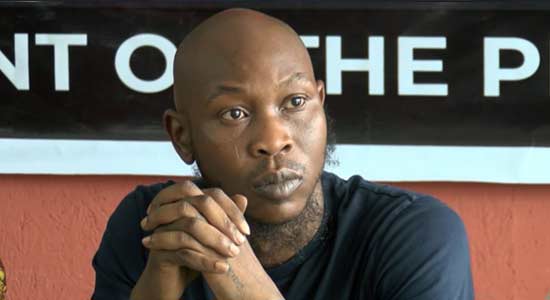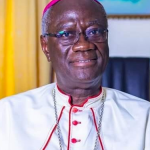Seun Kuti, the son of famed artist Fela Kuti and a Nigerian Afrobeat performer, has aroused outrage with his recent remarks that Lagos State belongs to the Portuguese.
The controversy over ownership of Lagos has raged for many years and has acquired impetus in the aftermath of the upcoming gubernatorial elections, with numerous factions making opposing claims.
Nonetheless, Kuti’s claim that the Portuguese are the legitimate owners of Lagos has gotten a lot of attention. Kuti recently asserted on Instagram that Lagos belongs to the Portuguese because they were the first Europeans to settle in the area.
He contended that the Portuguese had a legal claim to the property since they had established a trading post there before the arrival of other Europeans.
The singer bases his argument on the fact that the Portuguese named Lagos.
He believes that everyone who names a person or thing owns it.

“Lagos is no man’s land – wrong. Lagos is yoruba land – wrong again. Lagos is a European satellite slave port – correct!! you don’t know Lagos!! Hey, ode look here, Lagos is a Portuguese word. It is called the slave coast. Learn your history, you no go gree. Everyone moved to Lagos to slave!! All prominent Lagos elites are slavers. Defend your masters all you want!! Why Ibadan no get Portuguese name? Wetin be the french name of Oshogbo? He who names it owns it,” he opined.

Reactions
Kuti’s claims have sparked a wide range of reactions, with many Nigerians expressing disbelief and outrage. Some have accused Kuti of being ignorant of history and of promoting colonialism. Others have argued that Kuti’s claims have some merit and that the Nigerian government should do more to acknowledge the city’s complex history.
The question of who owns Lagos State remains a contentious issue, and Seun Kuti’s recent claims have added fuel to the debate. While Kuti’s assertion that the Portuguese are the rightful owners of Lagos may be controversial, it has brought attention to the complex history of the region and prompted discussions about how best to acknowledge and honour that history.
















